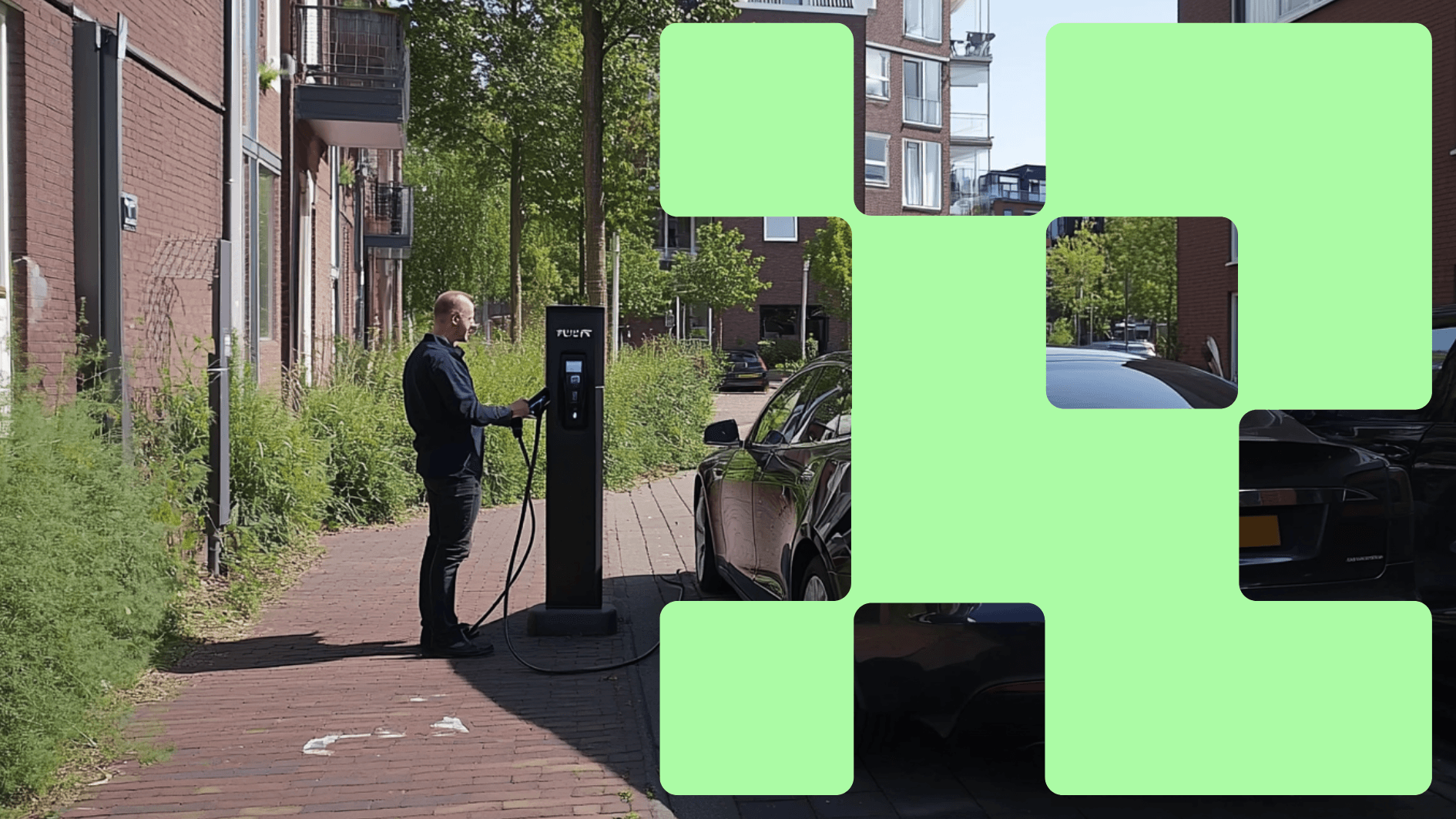Corporate EVs drove more kilometers than diesel ones in 2023
Dutch business electric cars drove more kilometers than diesel ones in 2023. In Behind the Figures, we take a closer look.
Published on November 13, 2024

Mauro swapped Sardinia for Eindhoven and has been an IO+ editor for 3 years. As a GREEN+ expert, he covers the energy transition with data-driven stories.
For the first time, in 2023, the number of kilometers driven by business electric cars in the Netherlands overtook the number driven by diesel-powered ones—including diesel hybrids. The new figures from the Dutch Statistics Institute (CBS) show that battery electric vehicles (BEVs) drove 5.6 billion kilometers, while diesel ones totaled 3.6 billion.
According to CBS classifications, business drivers are those who either own their private car and use it for business purposes or those who lease it—including leasing company vehicles. Corporate cars traveled over 25.5 billion kilometers in 2023, resulting in an average of 20.5 thousand kilometers per vehicle.

About Behind the Figures
In Behind the Figures, we examine one figure in every episode. Using charts and graphs, we break down the figures and provide context to help you make more sense of them.
However, only 25% of the total kilometers are driven by electric vehicles, a tenfold increase from ten years ago. Most kilometers were covered by petrol cars, which account for 54% of all kilometers driven by business cars (13.9 billion kilometers).
Similar trends in private cars
In 2023, cars registered to private individuals drove 94 billion kilometers, an average of 11.2 thousand kilometers per vehicle. These trends are comparable to those of business cars.
Petrol cars remain the undiscussed favorites, driving 79% of the total. Kilometers driven by diesel cars are dropping (-11%) among private passenger cars, as those covered by electric vehicles are increasing by 62.5% compared to 2022.
Car sales
Not only is the number of EV-driven kilometers growing, but in 2023, EVs were the most purchased car category, retaining 30% of the market. Overall, fewer cars are being sold than 15 years ago, as BEV sales surged and petrol car sales dropped. Diesel car sales plummeted over the years. In 2007, Dutchies bought over 143,000 vehicles. Last year, slightly over 4,000 were purchased.
European EV sales
With 30%, the Dutch market is Europe’s sixth in terms of EV sales, as shown by data from the European Automobile Manufacturers Association (ACEA). The Nordic countries are leading the charts. In Norway, over eight in ten newly purchased passenger cars were electric, and in Iceland, every other car was electric.
Overall, hybrid and plug-in electric cars are sold more than BEVs everywhere. Larger European countries are nowhere near the Nordics' BEV sales. Germany's new BEVs comprised 18.4% of the market and France's 16.8%. In Spain and Italy, BEVs only retained a marginal share of the market—5.4% and 4.2%, respectively.
Petrol-powered vehicles are still the most purchased option in most countries, reaching the highest share in several eastern European countries—in Bulgaria, three-quarters of newly bought cars were petrol-powered.
Greening company cars is greening transport
60% of the new cars in the EU are registered by companies, with over 50% being salary perks. An analysis by the transport NGO Transport & Environment (T&E) shows that corporate BEV uptake is slower than that of private citizens. In 2023, only 14.1% of newly bought corporate cars were electric, while the share of private households was 15.6%.
Fossil fuel company cars have access to tax benefits in several EU countries, prominently Germany, France, Italy, and Poland. T&E estimated that these fiscal benefits cost EU taxpayers €42 billion. Dutch tax rates are lower for less polluting cars. In addition, new zero-emissions commercial vehicle buyers in the Netherlands are eligible for a subsidy of up to €5,000.
The European Commission (EC) also mentions these tax breaks as fossil fuel subsidies. Both EC president Ursula von der Leyen and the then-candidate climate commissioner Wopke Hoekstra advocated phasing out fossil fuel subsidies. Given the relevance of the corporate car market in the EU, accelerating its decarbonization means fast-tracking the transport sector as a whole, with more options entering the second-hand market.
